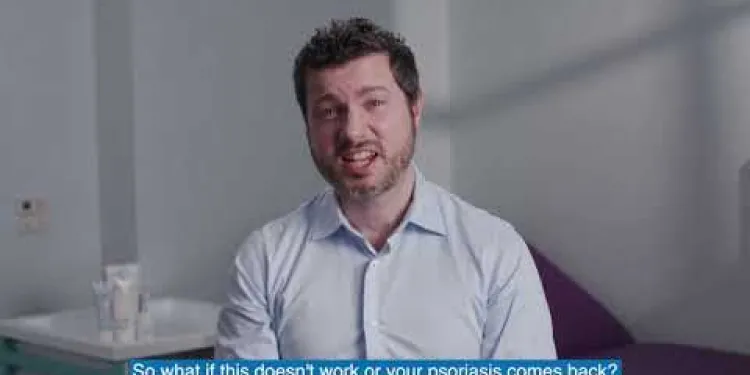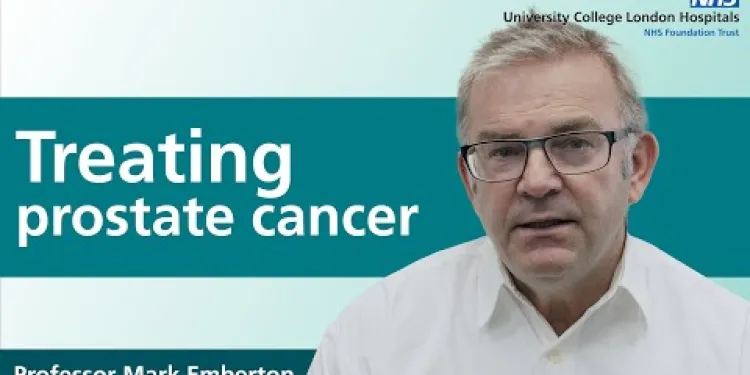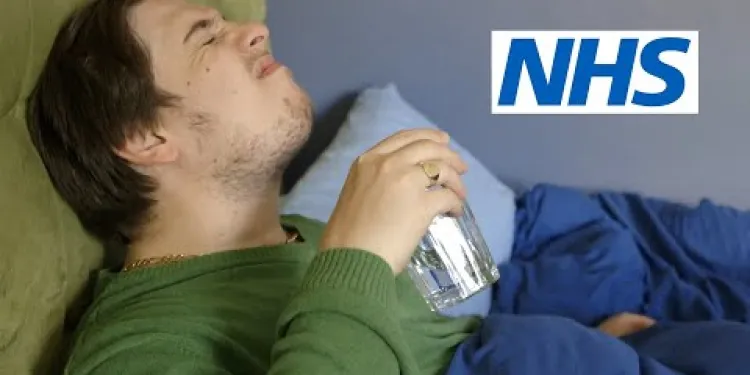Find Help
More Items From Ergsy search
-

Treating scalp psoriasis
Relevance: 100%
-

How to treat psoriasis
Relevance: 100%
-

Is it true that sunbeds can help treat skin conditions like psoriasis?
Relevance: 83%
-

What is psoriasis?
Relevance: 78%
-

Is there a cure for psoriasis?
Relevance: 77%
-

Psoriasis | NHS
Relevance: 76%
-

What are topical treatments for psoriasis?
Relevance: 75%
-

How is psoriasis diagnosed?
Relevance: 74%
-

What causes psoriasis?
Relevance: 73%
-

Are there home remedies for psoriasis?
Relevance: 73%
-

What are systemic medications for psoriasis?
Relevance: 70%
-

What treatment options are available for psoriasis?
Relevance: 70%
-

Can diet affect psoriasis?
Relevance: 70%
-

When should I see a doctor for psoriasis?
Relevance: 68%
-

Can stress trigger psoriasis flare-ups?
Relevance: 67%
-

What role do lifestyle changes play in managing psoriasis?
Relevance: 63%
-

Can over-the-counter treatments help with psoriasis?
Relevance: 51%
-

Can phototherapy help with psoriasis?
Relevance: 50%
-

How important is it to keep the skin moisturised with psoriasis?
Relevance: 49%
-

What are some common conditions treated with homeopathy?
Relevance: 46%
-

Can HPV be treated?
Relevance: 37%
-

Can appendicitis be treated with antibiotics?
Relevance: 36%
-

Do chiropractors only treat the spine?
Relevance: 35%
-

Can Lyme disease be treated?
Relevance: 35%
-

Can antibiotics treat norovirus?
Relevance: 35%
-
Can eating disorders be treated?
Relevance: 34%
-

Can measles be treated?
Relevance: 34%
-

What areas can be treated with Botox?
Relevance: 34%
-

What conditions is Omeprazole used to treat?
Relevance: 34%
-

How is impetigo treated?
Relevance: 33%
-

Can methanol poisoning be treated?
Relevance: 33%
-

Can scabies be treated over-the-counter?
Relevance: 33%
-

Treating prostate cancer
Relevance: 33%
-

How is scabies treated?
Relevance: 33%
-

How to treat tonsillitis | NHS
Relevance: 33%
-

Can H3N2 be treated with antiviral medications?
Relevance: 32%
-

How to treat a scald burn
Relevance: 32%
-

How is fungal meningitis treated?
Relevance: 32%
-

How to treat a sprained ankle
Relevance: 32%
-

How is sunburn treated?
Relevance: 32%
How to Treat Psoriasis
Understanding Psoriasis
Psoriasis is a chronic skin condition characterized by red, itchy, and scaly patches. It can affect any part of the body but is commonly seen on the elbows, knees, scalp, and lower back. Understanding the root causes and symptoms is crucial to managing the condition effectively. In the United Kingdom, psoriasis affects about 2% of the population, making it essential to have reliable treatment options readily available.
Topical Treatments
Topical treatments are often the first line of defense in managing psoriasis. These include corticosteroids, vitamin D analogues, and coal tar. Corticosteroids help reduce inflammation and slow down the skin cell turnover. Vitamin D analogues can help to slow the growth of skin cells, while coal tar products work by reducing scaling, itching, and inflammation. It's essential to follow your healthcare provider’s instructions when using these treatments to achieve the best results.
Phototherapy
Phototherapy, or light therapy, involves exposing the skin to ultraviolet (UV) light under medical supervision. This treatment can help slow skin cell turnover and reduce scaling and inflammation. In the UK, phototherapy is usually administered in hospitals or specialised clinics. It's essential to follow a dermatologist's advice to ensure the treatment is effective and to minimise potential risks like skin aging and an increased risk of skin cancer.
Systemic Medications
For more severe cases of psoriasis, systemic medications may be prescribed. These are oral or injectable drugs that work throughout the entire body, rather than just on the affected skin. Common systemic medications include methotrexate, cyclosporine, and biologic drugs that target specific parts of the immune system. Due to potential side effects, these treatments are typically monitored closely by healthcare professionals.
Lifestyle Changes
Lifestyle changes can also play a significant role in managing psoriasis. Maintaining a healthy diet, avoiding triggers like smoking and excessive alcohol, and managing stress can help control flare-ups. Exercise can also improve overall health and reduce stress, which may contribute to fewer symptoms. In the UK, various support groups and resources are available to help individuals manage the psychosocial aspects of living with psoriasis.
Consulting Healthcare Providers
It's imperative to consult healthcare providers for a tailored treatment plan. Dermatologists in the UK can offer specialised care and guidance on managing psoriasis effectively. Regular follow-ups and open communication with your healthcare provider can help adjust treatments as needed and ensure the best possible outcome.
Psoriasis is a manageable condition with the right treatment strategy. By combining medical treatments with lifestyle changes and professional guidance, individuals can significantly improve their quality of life.
How to Treat Psoriasis
What is Psoriasis?
Psoriasis is a skin problem. It makes red, itchy, and scaly patches on the skin. It can show up anywhere on your body. You often find it on the elbows, knees, scalp, and lower back. About 2 out of every 100 people in the United Kingdom have psoriasis. Knowing about it can help you manage it better.
Creams and Ointments
You can use creams and ointments to help with psoriasis. These are put right on the skin. Doctors often start with these treatments first. There are different kinds: - Corticosteroids: These help to reduce swelling and redness. - Vitamin D creams: These slow down the growth of skin cells. - Coal Tar: This helps make the skin less itchy and scaly. It's important to follow your doctor's advice when using these treatments to get the best results.
Light Therapy
Light therapy, also called phototherapy, uses special light to treat the skin. It can help slow down skin cell growth and reduce itching. In the UK, you usually get this treatment at a hospital or clinic. It's important to listen to a skin doctor’s advice. This way, the treatment works well and you stay safe from risks like early skin aging and skin cancer.
Medicines
If psoriasis is severe, doctors might give you medicine that you swallow or get through a shot. These medicines work on your whole body, not just your skin. Some common medicines are: - Methotrexate - Cyclosporine - Biologics (these target specific parts of the immune system) Because these medicines can have strong side effects, doctors watch closely how they affect you.
Healthy Habits
Changing some habits can also help with psoriasis. Eating healthy food, not smoking, drinking less alcohol, and reducing stress can help prevent flare-ups. Exercise is good too. It keeps you healthy and reduces stress. In the UK, there are support groups to help people handle the stress of living with psoriasis.
Talk to Your Doctor
It is very important to talk with your doctor to get the best plan for treating psoriasis. Skin doctors, called dermatologists, in the UK can give special help and advice. Meeting your doctor regularly and sharing how you feel can help adjust treatments and make them work better for you.
With the right treatment and lifestyle changes, people with psoriasis can feel a lot better and live a good life. Always work with your healthcare team to find what works best for you.
Frequently Asked Questions
What is psoriasis?
Psoriasis is a chronic skin condition characterized by red, itchy, and scaly patches. It is an autoimmune disorder that speeds up the lifecycle of skin cells.
What causes psoriasis?
Psoriasis is caused by a combination of genetic, environmental, and immune system factors. Triggers can include stress, infections, and certain medications.
How is psoriasis diagnosed?
Psoriasis is typically diagnosed through a physical examination of the skin. A doctor may also perform a skin biopsy to confirm the diagnosis.
What treatment options are available for psoriasis?
Treatment options for psoriasis include topical treatments, phototherapy, and systemic medications. The choice of treatment depends on the severity and type of psoriasis.
What are topical treatments for psoriasis?
Topical treatments include corticosteroids, vitamin D analogues, and moisturisers. These are applied directly to the skin to reduce inflammation and slow down skin cell production.
Can phototherapy help with psoriasis?
Yes, phototherapy, which involves exposing the skin to ultraviolet light, can help reduce psoriasis symptoms. It is usually administered in a healthcare setting.
What are systemic medications for psoriasis?
Systemic medications, such as methotrexate, ciclosporin, and biologics, are prescribed for moderate to severe psoriasis. These treatments work throughout the body to reduce inflammation.
Is there a cure for psoriasis?
There is currently no cure for psoriasis, but treatments can effectively manage the symptoms and improve quality of life.
Can diet affect psoriasis?
While no specific diet has been proven to cure psoriasis, a balanced diet rich in fruits, vegetables, and whole grains can support overall health and potentially reduce flare-ups.
Are there home remedies for psoriasis?
Home remedies such as keeping the skin moisturised, using over-the-counter creams and emollients, and taking oatmeal baths can help alleviate symptoms.
Can stress trigger psoriasis flare-ups?
Yes, stress is a known trigger for psoriasis flare-ups. Managing stress through relaxation techniques and lifestyle changes can help reduce symptoms.
What role do lifestyle changes play in managing psoriasis?
Lifestyle changes such as maintaining a healthy diet, regular exercise, and avoiding smoking and excessive alcohol can help manage psoriasis symptoms.
Can over-the-counter treatments help with psoriasis?
Over-the-counter treatments like moisturisers, emollients, and tar preparations can help relieve mild symptoms of psoriasis.
How important is it to keep the skin moisturised with psoriasis?
Keeping the skin moisturised is crucial as it can help reduce dryness and scaling, improving overall skin condition and comfort.
When should I see a doctor for psoriasis?
You should see a doctor if you have severe symptoms, if over-the-counter treatments are not effective, or if psoriasis is affecting your quality of life.
What is psoriasis?
Psoriasis is a skin problem. It makes your skin red, patchy, and scaly. It is not catching, so you can't give it to someone else.
Some tools can help you:
- Ask the doctor for help.
- Use cream to make it feel better.
- Talk with others who have the same problem.
Psoriasis is a long-lasting skin problem. It makes red, itchy, and flaky patches on your skin. It happens because the body's defense system makes skin cells grow too fast.
Why do people get psoriasis?
Psoriasis is a skin problem. It makes red patches on the skin. Doctors are not sure why people get psoriasis. They think it might happen because:
- The body’s protection system, called the immune system, gets confused and attacks the skin by mistake.
- It could run in families. This means if your parents have it, you might have it too.
- Sometimes, things like stress, cold weather, or getting sick can make it start.
If you have psoriasis and need help, you can:
- Talk to a doctor for advice.
- Use special creams that help the skin feel better.
- Try to stay warm and not get too stressed.
Psoriasis happens because of things like genes, the world around us, and the body's defense system. Things that can make it happen are stress, getting sick, and some medicines.
How do doctors know if someone has psoriasis?
Doctors look at your skin to check for psoriasis. They may ask about your family history. Sometimes, they take a small piece of skin to test it. This helps them know if it's psoriasis.
Helpful tools: Pictures of skin conditions can help you talk with your doctor. You can also use a mirror to check your skin.
Doctors can tell if you have psoriasis by looking at your skin. They might also take a small piece of skin to look at under a microscope to be sure.
What are the ways to help with psoriasis?
Psoriasis is a skin problem. It makes your skin red, itchy, and scaly.
Here are some ways to help:
- Creams and Lotions: You can put special creams on your skin. They help with redness and itching.
- Pills or Injections: Sometimes, doctors give medicine that you swallow or get as a shot. They help your body fight the skin problem.
- Light Therapy: Doctors may use a special kind of light on your skin. It can help make your skin better.
Always talk to a doctor about what is best for you.
Here are some things that might help:
- Keep Skin Moist: Use lotion to keep your skin soft.
- Avoid Scratching: Try not to scratch your skin, even if it itches.
If you have psoriasis, there are different ways to help make it better. These are the things you can try:
Skin Creams: You can put special creams on your skin to help.
Light Therapy: Sometimes, shining light on your skin can help.
Medicine: There are pills or shots that a doctor can give you.
Your doctor will help you decide which is best for you. This depends on how serious your psoriasis is and what kind you have.
Helpful Tips: You can use apps or tools to remind you to take your medicine or put on your cream. You can also ask someone you trust to help you remember. Talking to others with psoriasis can also make you feel better.
What are treatments you put on your skin for psoriasis?
Psoriasis is a skin problem. It makes your skin red and itchy. There are creams and lotions that help. These are called treatments you put on your skin.
Some creams make the red patches smaller. Others help stop the itchiness. You might need to use these treatments every day.
Ask a doctor or a nurse to find out which treatment is best for you. They can help you learn how to use the creams.
You can also talk to friends or family for support. Let them know how you feel and ask for help if you need it.
If you have sore skin, you can use special creams to help. These include:
- Steroid creams: They help to stop swelling.
- Vitamin D creams: They make skin heal better.
- Moisturising creams: They keep skin soft.
You put these creams on your skin to help it get better.
Can light therapy help with psoriasis?
Psoriasis is a skin problem that makes your skin itchy and red. It can be hard to live with.
Light therapy, also called phototherapy, is a treatment that uses special lights to help the skin get better.
Light therapy might be helpful for people with psoriasis. It can make the skin feel better and look better.
Always talk to your doctor before starting any new treatment.
You can use calendar reminders to help you remember appointments, and a notebook to write down how you feel after treatments.
Yes, light treatment can help make skin problems better. It uses special light to help the skin. A doctor or nurse usually does this in a clinic or hospital.
What medicines treat psoriasis all over the body?
Doctors give special medicines called methotrexate, ciclosporin, and biologics to help treat bad skin problems like psoriasis. These medicines help calm down the body and stop it from becoming red and sore all over.
Can psoriasis be fixed?
Psoriasis is a skin problem. It makes the skin red and itchy. There is no way to make psoriasis go away forever. But we can help make it better.
Doctors can give creams to help the skin feel better. There are also pills or lights that can help. Talking to a doctor can help find the best way to feel better.
Here are some things that can help:
- Use special creams for skin.
- Take baths to help the skin.
- Try breathing slowly or talking about how you feel when feeling upset.
Ask an adult or a doctor if you need help or have questions.
We cannot make psoriasis go away completely, but there are ways to make it better. Treatments can help you feel better and live a happier life.
Can what you eat change psoriasis?
What you eat might help with your psoriasis. Psoriasis is a skin problem that makes your skin red and itchy. Some foods can make it better, and some foods can make it worse.
You can try to eat healthy foods. Eat more fruits, vegetables, and whole grains. These foods can be good for your skin.
Some people find that certain foods make their psoriasis worse. These might be foods like sugar, dairy, or spicy foods. It is different for everyone.
You can keep a food diary. Write down what you eat and see how your skin feels. This can help you find out which foods are good or bad for your skin.
If you have questions, talk to a doctor. A doctor can help you find the best foods for your psoriasis.
No special food can cure psoriasis, but eating healthy can help. It's good to eat lots of fruits, vegetables, and whole grains. This can make you feel better and help with skin problems.
Can I treat psoriasis at home?
Psoriasis is a skin condition that makes your skin red and itchy. There are some things you can do at home to help.
Some people find that warm baths and using gentle creams can make their skin feel better. It's also important to keep your skin clean and moist.
If your skin still feels sore, you might need to see a doctor.
A helpful tool is asking someone you trust to help you understand what to do and remind you to stay on track with your care routine.
There are some things you can do at home to feel better:
- Put lotion on your skin to keep it soft.
- You can buy creams from the store that might help.
- Taking a bath with oatmeal can make your skin feel better.
Can being worried make psoriasis worse?
Yes, stress can make psoriasis worse. Psoriasis is a skin problem. It can get worse when you feel lots of stress or worry.
You can feel better by staying calm. Try to relax and do fun things. Changing how you live might help too. This can make the psoriasis less of a problem.
If you need extra help, you can use tools like meditation apps or listen to calming music. Talking to someone like a friend or a counselor can also be useful.
How do changes in daily habits help with psoriasis?
Making small changes in how you live can help with psoriasis. Eating healthy food, doing regular exercise, and not smoking or drinking too much alcohol can make a big difference.
Can I buy medicine in a shop to help with psoriasis?
You can buy creams from the shop to help with psoriasis. These include moisturisers, special creams, and tar treatments. They can make your skin feel better if your psoriasis is not too bad.
Why is it important to keep your skin soft when you have psoriasis?
Keeping your skin soft and smooth can help when you have psoriasis. Psoriasis can make skin dry and itchy. Using lotion or cream can make skin feel better.
Here are some easy tips to help:
- Put lotion on every day, especially after you wash.
- Use a gentle lotion that is safe for your skin.
- Try not to scratch your skin. Instead, put more lotion if it feels itchy.
You can ask a doctor or nurse for more ideas on keeping skin soft.
It is important to keep your skin soft and moist. This can stop your skin from getting dry and rough. It makes your skin feel better.
When should I see a doctor for psoriasis?
Psoriasis is a skin problem. Your skin gets red, dry, and it can be itchy. Sometimes, it is hard to manage by yourself. Here’s when you should ask a doctor for help:
- Your skin is very sore or itchy.
- The sore skin is all over your body.
- You feel upset or worried about your skin.
- Medicine or cream is not helping.
If you want to talk to a doctor:
- Ask a family member to go with you.
- Write down questions to ask the doctor.
Go to the doctor if:
- You feel very sick.
- Medicine from the shop does not help you.
- Your skin problem makes life hard to enjoy.
Useful Links
This website offers general information and is not a substitute for professional advice.
Always seek guidance from qualified professionals.
If you have any medical concerns or need urgent help, contact a healthcare professional or emergency services immediately.
Some of this content was generated with AI assistance. We’ve done our best to keep it accurate, helpful, and human-friendly.
- Ergsy carfully checks the information in the videos we provide here.
- Videos shown by Youtube after a video has completed, have NOT been reviewed by ERGSY.
- To view, click the arrow in centre of video.
- Most of the videos you find here will have subtitles and/or closed captions available.
- You may need to turn these on, and choose your preferred language.
- Go to the video you'd like to watch.
- If closed captions (CC) are available, settings will be visible on the bottom right of the video player.
- To turn on Captions, click settings .
- To turn off Captions, click settings again.
More Items From Ergsy search
-

Treating scalp psoriasis
Relevance: 100%
-

How to treat psoriasis
Relevance: 100%
-

Is it true that sunbeds can help treat skin conditions like psoriasis?
Relevance: 83%
-

What is psoriasis?
Relevance: 78%
-

Is there a cure for psoriasis?
Relevance: 77%
-

Psoriasis | NHS
Relevance: 76%
-

What are topical treatments for psoriasis?
Relevance: 75%
-

How is psoriasis diagnosed?
Relevance: 74%
-

What causes psoriasis?
Relevance: 73%
-

Are there home remedies for psoriasis?
Relevance: 73%
-

What are systemic medications for psoriasis?
Relevance: 70%
-

What treatment options are available for psoriasis?
Relevance: 70%
-

Can diet affect psoriasis?
Relevance: 70%
-

When should I see a doctor for psoriasis?
Relevance: 68%
-

Can stress trigger psoriasis flare-ups?
Relevance: 67%
-

What role do lifestyle changes play in managing psoriasis?
Relevance: 63%
-

Can over-the-counter treatments help with psoriasis?
Relevance: 51%
-

Can phototherapy help with psoriasis?
Relevance: 50%
-

How important is it to keep the skin moisturised with psoriasis?
Relevance: 49%
-

What are some common conditions treated with homeopathy?
Relevance: 46%
-

Can HPV be treated?
Relevance: 37%
-

Can appendicitis be treated with antibiotics?
Relevance: 36%
-

Do chiropractors only treat the spine?
Relevance: 35%
-

Can Lyme disease be treated?
Relevance: 35%
-

Can antibiotics treat norovirus?
Relevance: 35%
-
Can eating disorders be treated?
Relevance: 34%
-

Can measles be treated?
Relevance: 34%
-

What areas can be treated with Botox?
Relevance: 34%
-

What conditions is Omeprazole used to treat?
Relevance: 34%
-

How is impetigo treated?
Relevance: 33%
-

Can methanol poisoning be treated?
Relevance: 33%
-

Can scabies be treated over-the-counter?
Relevance: 33%
-

Treating prostate cancer
Relevance: 33%
-

How is scabies treated?
Relevance: 33%
-

How to treat tonsillitis | NHS
Relevance: 33%
-

Can H3N2 be treated with antiviral medications?
Relevance: 32%
-

How to treat a scald burn
Relevance: 32%
-

How is fungal meningitis treated?
Relevance: 32%
-

How to treat a sprained ankle
Relevance: 32%
-

How is sunburn treated?
Relevance: 32%


